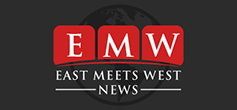Tabula Rasa – Therapy and Education for War Orphans GoFundME Booster Promotion CrowdFunding Campaign CrowdFundingExposure Viral Exposure
Project Tabula Rasa is a multi-focus comprehensive integration plan that centers on the inclusion of refugee children both in children’s homes and living with their families either in reception centers or outside of the centers. Due to its nature of interdisciplinary approach, it is open for scholars and volunteers from different fields to interact and contribute to it.
The main approach of the project is to come up with an open-source methodological manual and associated practical guide/ exercise compilation that enhances the process of integration[1] of the various cultural background youth into the majority culture of their society.
The foci of the plan is based on the following principles:
Identity: refugee children learn about their roots, as well as, of the target country’s culture, traditions and customs. They understand that individual and national traditions are not given up during the program, they are rather “widened” and given “extra” perspectives.
Reciprocity: Integration is a two-way process, the majority society should get to know the customs/ stories/ traditions of the people living in their country as refugees. Emphasis should be put on educating students in school during sensitivity trainings, too.
Language: Language learning is one of the first priorities of the program, since a common language is one of the key aspects of opening perspectives for the refugee children in the target countries. Furthermore, learning the target country’s official language helps them gain access to education, extracurricular activities, extends their opportunities, etc. The program is not solely a language learning program, it only focuses on the first steps of learning a new language by using a multi-channel based learning method that speeds up the learning process.
Education: Minors should be willing and able to join institutionalized education of the target country. Parallel to this, access to native language studies should be made (Sunday school, alternative school, self-organized study groups, etc.) As a sub branch of the project, a mobile-school project is being sketched up for children not gaining access to ordinary schools.
Support: Since many refugee children have experienced events that are hard to process emotionally, part of the project is working out a network of emotional and professional help with the inclusion of family members and if necessary, professionals of the field. The support also includes therapy or therapy-like solutions, such as animal assisted therapies, art therapy, etc. to help coping with difficult situations.
Sustainability: The project itself should be made sustainable, therefore all research, accomplishment, methodology and discoveries are made open-source and free in online forums. The goal of the project is to collect, write down and test a comprehensive methodological approach that can be taught to professionals and volunteers and can be used to enhance the integration of refugee children.
Further goals: Adapting the project’s methodology to adults and families viewed as a whole unit.
[1] It is important to note that integration used in this context as the process of enabling mutual understanding between minority and majority cultures by finding and focusing on common grounds, yet preserving one’s root and identity.

